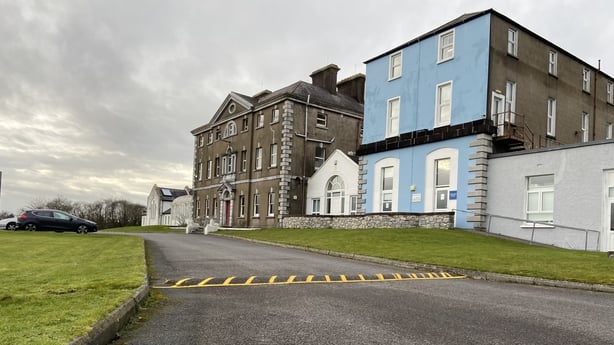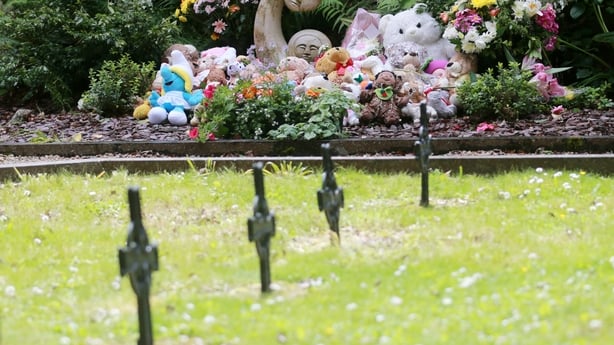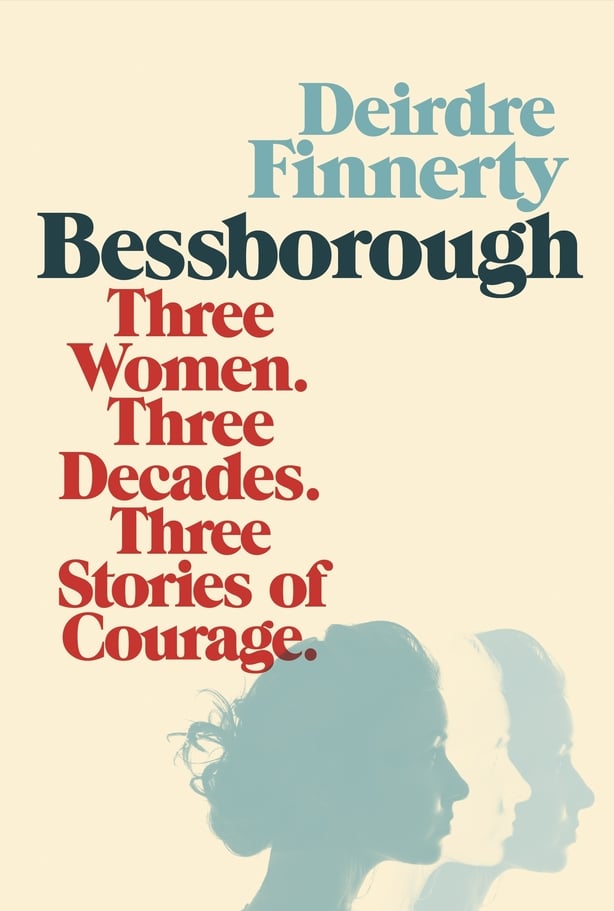In her new book Bessborough: Three Women. Three Decades. Three Stories of Courage, BBC reporter Deirdre Finnerty tells the story of Bessborough House, a grand country mansion on the outskirts of Cork city, which operated as one of Ireland's biggest mother and baby institutions for over 70 years, via the remarkable tales of a trio of remarkable women confined there in the 60s, 70s and 80s.
Below, Deirdre revisits the long road to telling the forgotten stories of Bessborough's survivors.
In January 2020, I woke up to an email with the news I had been commissioned to write a book. While other writers might have been thrilled, a sense of dread pooled in my stomach. This wasn't the imposter syndrome that plagues many professional women. This went deeper, a feeling that meant I didn’t tell anyone about the email for three full days. From under the duvet, I drafted a reply that I wasn’t brave enough to send. 'No, I can’t do this’, it read.
It wasn’t that I didn’t want to write the book. I did. But the commission was based on a BBC article I had written on the Bessborough mother-and-baby institution, in operation between 1922 and 1998. Thousands of women and girls who had passed through its doors had their children taken from them and placed for adoption, often without their consent. The burial places of hundreds of children who died there remain unknown and the impact on survivors has been devastating. Writing a book would mean interviewing people who had been through multiple traumas - confinement in an institution, separation from their children, exclusion from society. How could I do this sensitively? How could I ensure that I first did no harm?
As winter turned to spring, and a lockdown gloom settled over our days, I attempted an outline for the manuscript. A nervousness clouded my drafts; there were days I struggled to tap out a single sentence. Some survivors were too fragile for the project, for others, sharing their experiences in detail felt too much. I deleted my work and redrafted it on repeat, wondering if I should continue.

Still, I wasn’t quite ready to give up. I made more connections, joined Facebook groups and trawled local media. And as the weeks and months went on, I spoke with Joan McDermott, Terri Harrison and Deirdre Wadding, who agreed to share their experiences publicly. Crucially, they were mentally strong, had support networks and shared my passion for putting their stories on the record. ‘It’s our truth,’ Joan told me, her voice clear and confident. Their commitment spurred me on.
Joan, Terri and Deirdre had spent time in Bessborough in three different decades and their stories provided a clear framework for the manuscript. The outline came together. I read books about how to interview those who had gone through trauma, I asked journalists and colleagues for advice. From BBC trauma trainer Jo Healy, I learned that the job of a writer reporting on trauma is to hear someone’s account, never to hold them to account. But the project was more complicated than I had first realised; I took a career break from my job in London to focus on it properly.
How could I put a structure on memories so traumatic they were sometimes blurred around the edges?
Back in Ireland with a toolbox of ways to conduct interviews, I still felt uneasy at the start of each one; I knew it would be difficult for Joan, Terri and Deirdre. But all three surprised me with their striking ability to remember Bessborough’s sounds, sights, colours and smells. Their vivid descriptions took me inside the institution in the 1960s, 1970s and 1980s; through their eyes, I saw the hastily-packed cases in long-roomed dormitories; the gleaming parquet floors; the nurseries filled with babies women and girls would never take home.
Their accounts of what happened afterwards were the most revealing. For Deirdre Wadding the reality was "deep trauma, deep grief, deep loss, devastation, and an imprint that led to huge issues within relationships." I learned that Joan can’t bear to be in a confined space, that the smell of everyday cleaning fluid can trigger a flashback for Deirdre. Terri’s interviews were filled with longing; she hoped the son she had never met would read about them and get in contact with her. Even though she knew this was a slim possibility and I had not led her to believe this would be the case, I felt guilty about it for days afterwards; the weight of responsibility hung heavily on my shoulders.

(Pic: RollingNews.ie)
Not all of what we talked about was sad. I got to know Joan, Terri and Deirdre’s personalities, to hear their life histories, and this was a wonderful privilege. Each had a different theme they wanted to highlight: Joan the difficulties of tracing children lost to adoption, Terri the impact of losing a child at a time when mental health was not talked about in Ireland, Deirdre the effects her time in Bessborough had on her parenting and marriages.
Once the interviews were done, a new challenge emerged. How could I put a structure on memories so traumatic they were sometimes blurred around the edges? For weeks, I stared blankly at a photo at my desk of Bessborough House, trying to figure out where to start. Early drafts were flat, and it took many revisions to describe them as vividly as Joan, Terri and Deirdre had recounted them. The drafts that flowed best structured their accounts through key moments in their lives, as though the reader were a fly on the wall through the decades. And all three women admitted that they found it strange, reading about their lives on the page, but they didn’t skip over the most difficult sections.
Now that the book has been published, I still sometimes feel anxious about it, as it’s based on such sensitive issues in Ireland. But overall, I’m glad I wrote it. It is built on the generosity of a group of remarkable women who told their stories so that younger generations would learn from their experiences. I hope readers will discover that this book is about so much more than the traumatic impact of a mother-and-baby institution on three women’s lives, it is also a testament to their courage, resilience and strength.

Bessborough, Three Women, Three Decades, Three Stories of Courage is published by Hachette Books Ireland.

